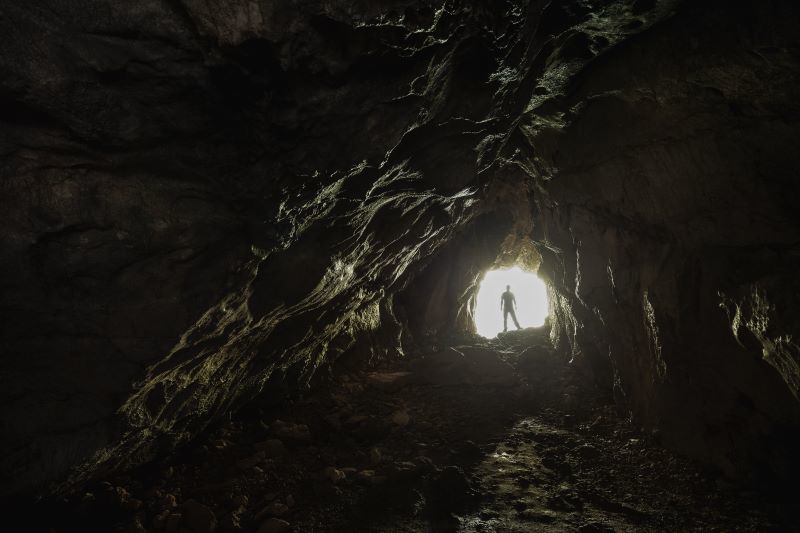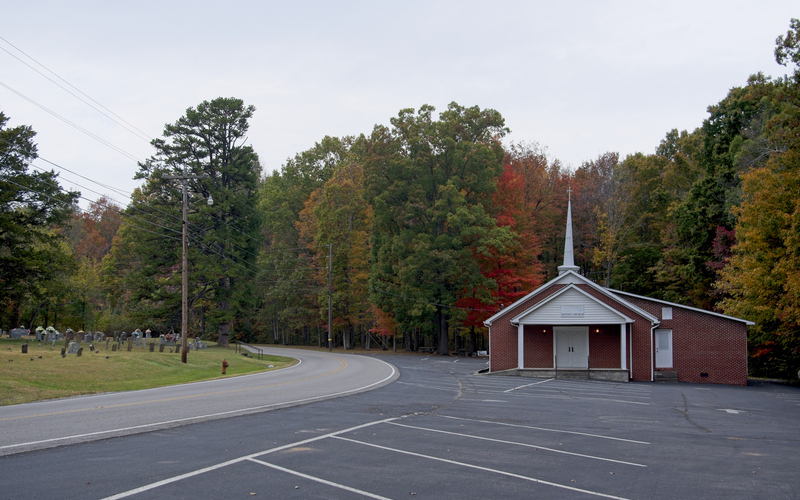Preparing for Persecution (Part 6)
Sign up for a six month free
trial of The Stand Magazine!
In this sixth and final blog considering the idea of Preparing for Persecution, I want to conclude by rounding out the discussion of the last blog by noticing how the apostles reacted courageously despite strong opposition.
In the fifth blog, I told you there were five things I wanted to mention about The Believer’s Boldness.
We considered the first two here. We will conclude with the final three.
- The Purpose They Accepted
And when they heard that, they lifted up their voice to God with one accord, and said, Lord, thou [art] God, which hast made heaven, and earth, and the sea, and all that in them is: Who by the mouth of thy servant David hast said, Why did the heathen rage, and the people imagine vain things? The kings of the earth stood up, and the rulers were gathered together against the Lord, and against his Christ. For of a truth against thy holy child Jesus, whom thou hast anointed, both Herod, and Pontius Pilate, with the Gentiles, and the people of Israel, were gathered together, For to do whatsoever thy hand and thy counsel determined before to be done (Acts 4:24-28).
Despite facing persecution, notice their clear acknowledgment and acceptance of God’s sovereignty, indicated in a number of ways here.
First, it’s indicated by the title they used.
And when they heard that, they lifted up their voice to God with one accord, and said, Lord, thou [art] God, … (Acts 4:24).
The word for Lord here is very interesting. In fact, it’s used very rarely in the New Testament, so rare it appears this way only five times.
The Greek word is "despotes." If that word sounds familiar, it’s because from that word we derive our English word, despot. A despot of course is one who holds absolute power.
Today, we’ve come to despise the thought of a despot. We think about Mao, Stalin, Hitler, and even present-day would-be despots, like Trudeau and Biden.
Because we value freedom, we consider authoritarianism, tyranny, despotism, and such the like to be bad things – and when wielded by man, they certainly are.
Used here, the word simply means “master.” Their use of this title indicates that they were aware that God was in absolute control.
John MacArthur said,
“Faced with opposition, they took comfort in God’s sovereignty. All their suffering was in His will. Being the Creator of everything, He is in complete control of all events. Confidence in the absolute rulership and might of God was enough to sustain them.”
Second, it’s indicated by the text they cited.
Here, they were referring to Psalm 2:1-2.
Quoting the Psalm, almost word for word, they said,
Why did the heathen rage, and the people imagine vain things? The kings of the earth stood up, and the rulers were gathered together against the Lord, and against his Christ (Acts 4:25-26).
Why did they mention this? Psalm 2, being prophetic and Messianic in nature, actually forewarned about what would happen to Christ, and thus anyone who followed Him.
The heathen would rage, and the kings and rulers would come together in their opposition of Christ. Jesus warned that anyone who followed Him would suffer the same fate.
The fact that they were citing this passage indicates they knew what they would be up against by being faithful.
Third, it’s indicated by the truth they acknowledged.
For of a truth against thy holy child Jesus, whom thou hast anointed, both Herod, and Pontius Pilate, with the Gentiles, and the people of Israel, were gathered together, For to do whatsoever thy hand and thy counsel determined before to be done (Acts 4:27-28).
Following their reference to the Psalm, they essentially said, “Well, it happened just like God said, and many of us were witnesses to it.”
They acknowledged the truth that Herod, Pontius Pilate, the Gentiles, and Israel, all came together, to do what? “… whatsoever thy hand and they counsel determined before to be done” (Acts 4:28).
They had full confidence that although the pressure was increasing and they were beginning to face persecution, God was absolutely sovereign.
Campbell Morgan said, “It was the conviction, not merely of His sovereignty, not merely of His wisdom, but of His actual, definite, government and overruling, in the affairs of men.”
Regarding the Psalm 2 prophecy and fulfillment of it, MacArthur said, “It reminds us that God is the supreme historian who wrote all history before it ever began. Having done their worst, they merely succeeded in fulfilling God’s eternal plan.”
Though facing difficulty, the early church rested in God’s absolute control – even suffering.
- The Person To Whom They Appealed
And when they heard that, they lifted up their voice to God with one accord, and said, Lord, thou [art] God, which hast made heaven, and earth, and the sea, and all that in them is: ... And now, Lord, behold their threatenings: and grant unto thy servants, that with all boldness they may speak thy word (Acts 4:24, 29).
After acknowledging and praising God for His sovereignty, they appealed to Him in prayer.
It’s important to remember, the Sanhedrin’s threats were real. The Sanhedrin did have power and authority. This was the same group of people who hated Christ, and ultimately had Him falsely accused and brutally massacred. If they could do it to the Son of God, surely, they could do it to His followers.
These believers knew the possibilities. They knew this because Christ had warned of persecution.
But rather than discussing this situation amongst themselves, deciding to comply so as not to face further difficulty, and then appealing to the leaders to make their concessions, they appealed to God instead.
And in their appeal to God, they asked for two things.
First, they asked for courage.
And now, Lord, behold their threatenings: and grant unto thy servants, that with all boldness they may speak thy word (Acts 4:29).
They asked for boldness, but what they didn’t ask for is even more telling of their character.
Campbell Morgan said,
“They did not ask that the threatenings might cease, nor even that the threatenings might not be carried out. They did not ask that they might escape from the logical issue of persecution and death that they had seen. There was no such request. They asked that He would look upon their threatening; and then immediately that they might have boldness to speak the Word…”
Do you find that amazing? Their appeal to God was not to be removed from trial or suffering or persecution or even death. They didn’t anticipate or ask for the Sanhedrin to soften their position. They didn’t ask for the blinded eyes of the Sanhedrin to be opened to the truth.
Their appeal was to be bold enough to continue doing the very thing that put them before the Sanhedrin in the first place.
Are we made of that same kind of stuff today – that we would pray for courage to keep doing what God has called us to do even when it is bringing hardship on us while doing it? May we pray for that kind of courage and boldness.
Second, they asked for confirmation.
By stretching forth thine hand to heal; and that signs and wonders may be done by the name of thy holy child Jesus (Acts 4:30).
They prayed that they would have the courage, but that God would do the work, and that the work (miracles in this case) would confirm that they were indeed of God. They were not seeking praise for themselves.
They certainly could have done that. In Acts 3, just after the lame man had been healed, we read “ … all the people ran together unto them in the porch that is called Solomon's, greatly wondering” (Acts 3:11).
Peter wasn’t about to have them being amazed at him. "And when Peter saw [it], he answered unto the people, Ye men of Israel, why marvel ye at this? or why look ye so earnestly on us, as though by our own power or holiness we had made this man to walk?” (Acts 3:12).
Peter went on to tell them that it was by the name of Christ the lame man had been healed. These believers were pointing all praise to God, during the good and the bad.
When God is at work and things are happening, it’s easy for man to poke his chest out and try and take credit for what’s going on.
We must be careful that we don’t let that prideful mentality creep in. We must keep in mind that anything good comes from God and is an act of mercy and grace on His part.
They were depending on God for His power to be manifest through them. They wanted boldness to do the work, and then the signs to prove that the work was of God, not of them.
- The Power They Attained
And when they had prayed, the place was shaken where they were assembled together; and they were all filled with the Holy Ghost, and they spake the word of God with boldness (Acts 4:31).
They had praised God, they had prayed to God, and now they were experiencing the power of God.
As on the day of Pentecost, there was a sign, a physical manifestation of the presence of the Holy Spirit – “…the place was shaken…”
They had just asked for “signs and wonders,” and now here it was – God making Himself known.
Why a shaking?
It was confirmation of course, but I like what John Phillips says here:
“The shaking of that house was symbolic of the shaking now taking place in the house of Israel. … Old ideas, systems, theologies, prejudices, and power structures in Israel were being shaken to the very foundations by the proclamation of the name of Jesus. Many were fleeing to God’s new house, the church. Others were determined to shore up the tottering old house at all costs.”
Thousands of new believers were flocking to this new “Way,” while the religious elite in their rejection were trying with all their might to salvage their dead religion.
The foundations were being shaken indeed.
Beyond the shaking, we see, “they were all filled with the Holy Ghost, and they spake the word of God with boldness” (Acts 4:31).
Now, let me ask: What had they prayed for? Boldness to speak the Word.
What did they get? Boldness to speak the Word.
May we pray for such boldness for the work of God. I believe if we do, when we are truly seeking it for the Lord’s work, He will answer us just as fully and speedily as He did the early church.
Campbell Morgan said, “In proportion as we are submitted to Christ, and wait in prayer upon God, there will ever come to us that inflow of the Spirit, which will make us bold to proclaim…”
I want to wrap up this series with what John MacArthur said as he concluded his thoughts on the churches first bout with persecution:
“The church had successfully faced its initial trial of opposition. Instead of succumbing to the temptation to compromise the gospel, it became even bolder. The persecution also served to draw the congregation closer together and to their Lord. In what was to become a recurring theme in church history, opposition only made the church grow stronger. As He has with Joseph, God took the evil intentions of men and used them for His own purposes.”
As we see the pressure increasing around us, may we pray for courage, dig in our heels, stand strong, and preach Jesus with holy boldness.

Sign up for a free six-month trial of
The Stand Magazine!
Sign up for free to receive notable blogs delivered to your email weekly.



















